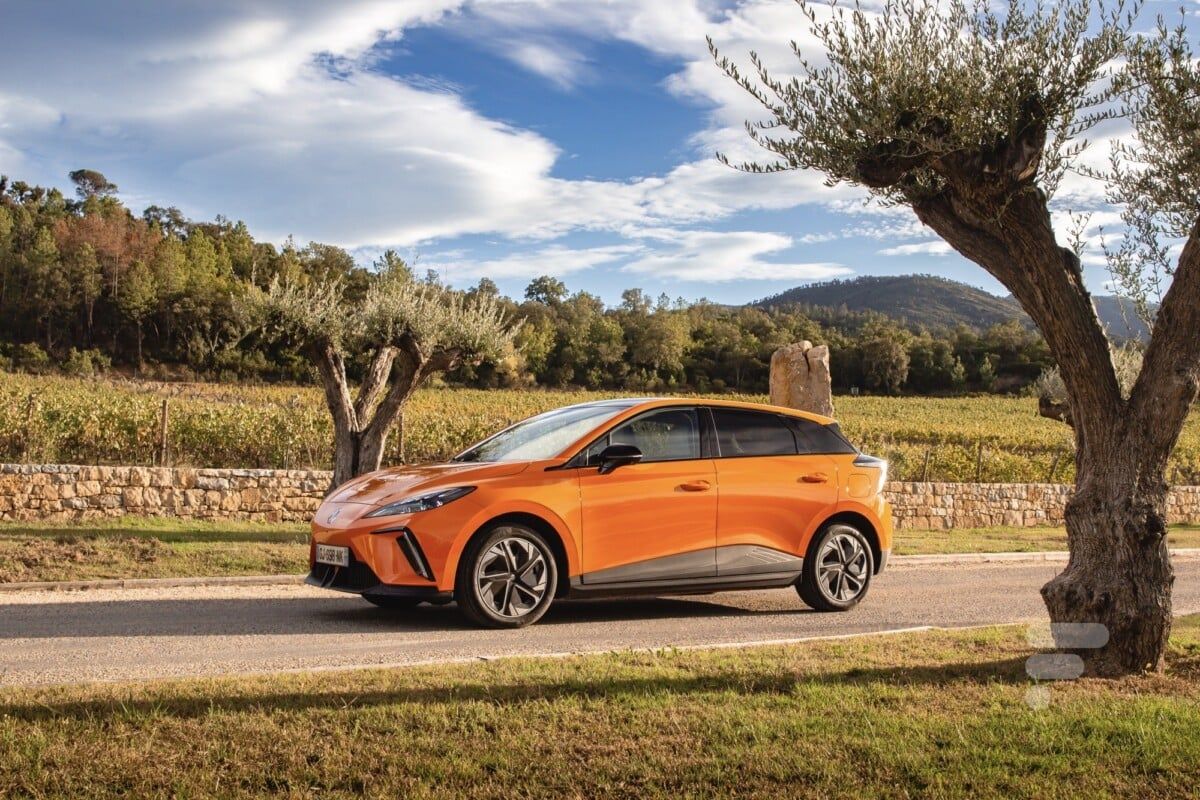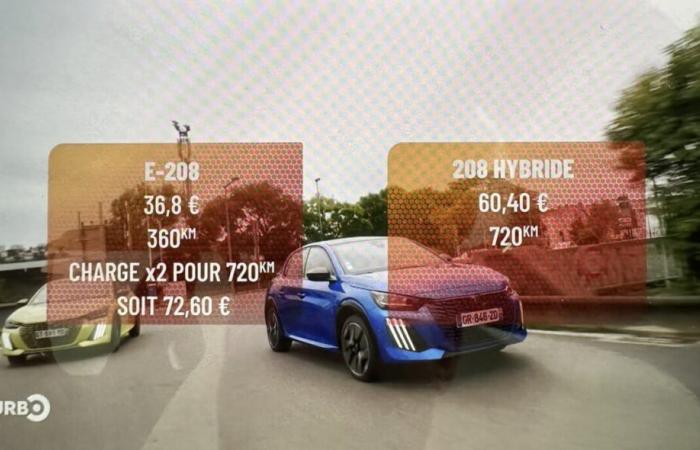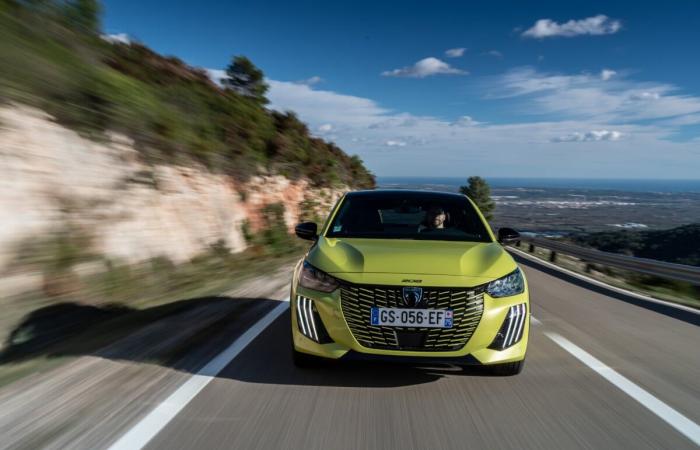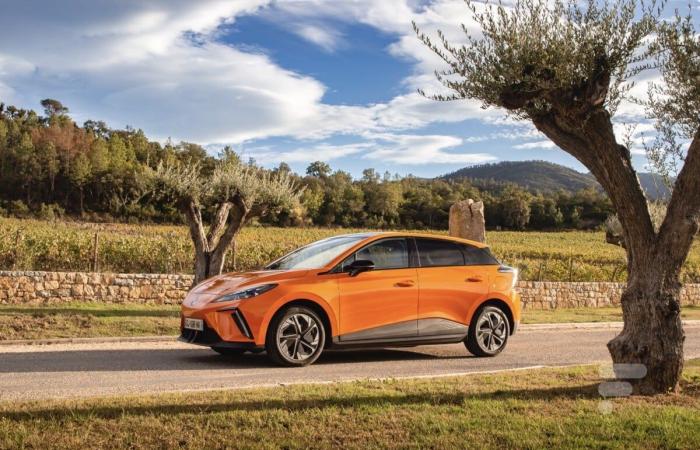There is confusion surrounding the real cost of using electric cars. And the mainstream media does not help resolve this confusion. Latest example: Turbo on M6.
The transition to electric cars has sparked numerous debates, particularly on the question of costs.
After TF1 or Franceinfo, a recent M6 program, Turbo, broadcast on November 3, 2024, presented an analysis of the cost of using the Peugeot e-208 which deserves to be seriously dissected. Because beyond simple calculation errors, it is a whole approach to automotive information that raises questions.
To go further
TF1 report during a long journey in an electric car: the mistakes they made, our advice to avoid them
The reality of charging costs: a world far from fantasies
Let's start with the basics: the new Peugeot e-208 has a 51 kWh battery. The show claims that a full charge at home would cost “between €10 and €15”.
However, a quick arithmetic calculation is enough to demonstrate the error: with an average domestic rate of €0.15 per kWh during off-peak hours, a full recharge costs €7.65. Even taking into account the peak hour rate of €0.23/kWh, we barely reach €11.73. The reality is therefore much more advantageous than what was presented. Obviously, we must take into account the efficiency of a load, it is approximately 95%. However… who does a 0 to 100% charge?
This content is blocked because you have not accepted cookies and other trackers. This content is provided by Twitter.
To be able to view it, you must accept the use carried out by Twitter with your data which may be used for the following purposes: allowing you to view and share content with social media, promoting the development and improvement of products from Humanoid and its partners, display personalized advertisements to you in relation to your profile and activity, define a personalized advertising profile, measure the performance of advertisements and content on this site and measure the audience of this site (find out more more)
By clicking on “I accept all”, you consent to the aforementioned purposes for all cookies and other trackers placed by Humanoid and its partners.
You can withdraw your consent at any time. For more information, we invite you to read our Cookies Policy.
I accept everything
Manage my choices
Even more problematic, the show puts forward a rate of 90 cents per kWh on fast terminals. A figure which does not correspond to the reality of the French market, where prices generally oscillate between €0.50 and €0.60/kWh (and even lower). Even premium networks rarely exceed €0.75/kWh. Another significant overestimation which completely distorts the comparative analysis.
The concrete case of a long journey: handling by example
The program concludes that a journey of 720 km would cost €36.80 more with electric than with hybrid. This conclusion is based on a scenario totally disconnected from real uses.
In practice, the majority of electric car users (around 80%) primarily charge at home. Charging at fast terminals only represents a minority share of their consumption, mainly during long journeys.
Let's take this same 720 km journey with a realistic charging mix:
- A full recharge at home before departure (€7.65)
- One or two quick recharges on the way (around €15-20) The total cost is therefore between €22 and €28, significantly less than the €36.80 announced.
To go further
Everything you need to do to miss a long journey in an electric car
Reality on the motorway: three models put to the test of long journeys
Let's take the concrete example of three vehicles on a mixed city/motorway route, taking into account excess motorway consumption, a factor often neglected in comparisons.
The Peugeot e-208, with its 51 kWh battery, sees its consumption increase significantly on the motorway. If in town it is satisfied with 15.5 kWh/100 km, it easily reaches 19-21 kWh/100 km on the motorway at 130 km/h. On a Paris-Lyon journey (450 km), this involves at least a full recharge.
In practice, drivers often stop twice for 20-80% shorter recharges, a more comfortable and often more economical strategy. The total cost of the trip, including an initial domestic recharge (€7.65) and two partial fast recharges (around €12 each), is around €31-32.
The Tesla Model 3 Propulsion, despite its larger 60 kWh battery, benefits from better aerodynamics. Its consumption goes from 14.8 kWh/100 km in the city to around 18-19 kWh/100 km on the motorway. On the same Paris-Lyon route, it generally requires a single recharge, ideally placed halfway. With the Tesla Supercharger network, often cheaper than the competition (around €0.35-0.50/kWh depending on timetables), the total cost of the trip is between €23 and €28, domestic charging included.

As for the MG4 Standard, it represents an excellent compromise. With an urban consumption of 15.2 kWh/100 km which rises to 19-20 kWh/100 km on the motorway, it displays very respectable energy performance for its price.
On our reference route, its behavior is similar to that of the e-208, with two strategic recharges. The total cost of the trip is therefore between €29 and €31.
To go further
What is the best electric car for long journeys (charging cost and range)?
Why such misinformation?
Let's call a spade a spade: the Turbo show's calculation errors are too gross to be simple approximations. How can a reference program, on the air for more than 35 years, be wrong about a multiplication as basic as 51 x 0.15?
This is all the more obvious as the show is not its first attempt. Electric car tests are often presented in their worst light: autonomy tested in extreme cold, charging only at the most expensive terminals, comparisons based on improbable usage scenarios… It seems as if no one ever charges at home!
The most worrying thing is the impact on the public. Many French people still trust these “historical” broadcasts for information. Result ? Preconceived ideas die hard and purchasing decisions are biased by incorrect information.
Yes, the electric transition is shaking up the habits of the auto media. Yes, it's more complicated to explain the different types of recharging than to talk about filling up with gas. But in 2024, these approximations no longer apply.
Electric car drivers are sharing their real costs on social media, and the difference with what is shown on TV is becoming more and more obvious.
It's time for traditional auto media to make their own transition. Let them accept that the world is changing, that electric cars are no longer the exception, but are gradually becoming the norm. And above all, that they respect their audience enough to give them verified information, even if it does not please everyone.
Want to join a community of enthusiasts? Our Discord welcomes you, it is a place of mutual help and passion around tech.








